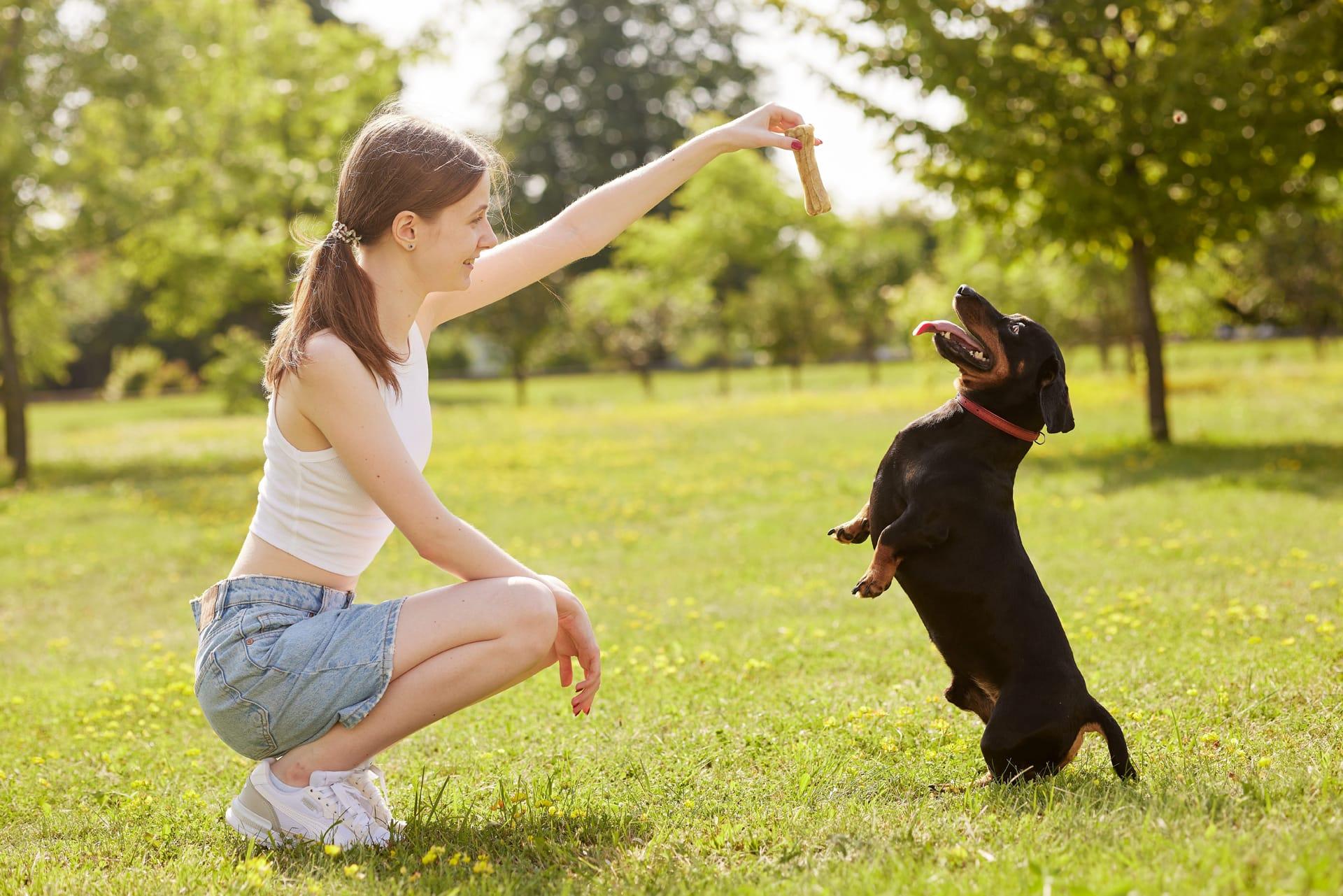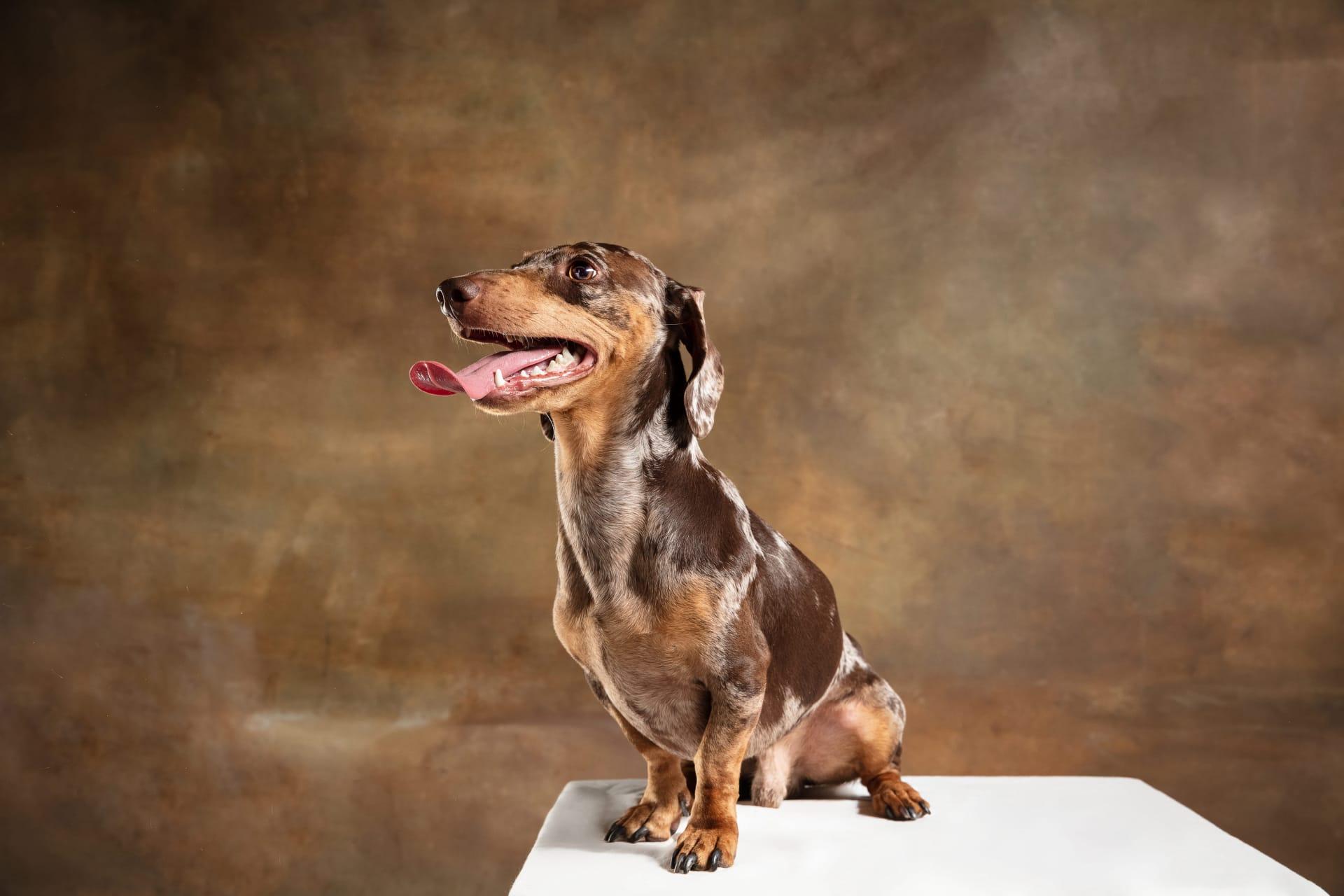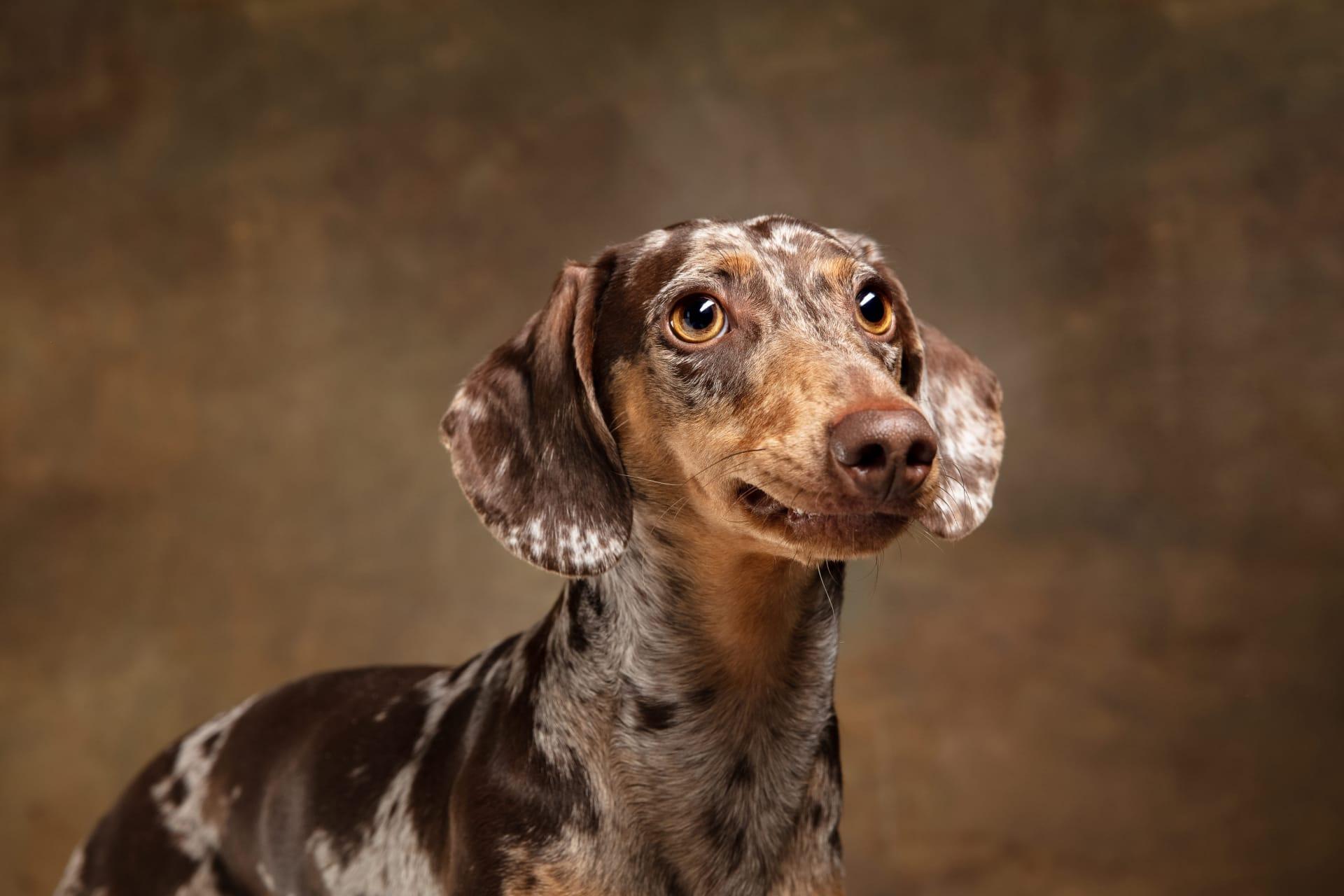1
The Dachshund, often nicknamed the "wiener dog" due to its elongated body, was originally bred in Germany over 600 years ago to hunt badgers. Their unique physique, with a long torso and short legs, allowed them to dig into badger dens and engage their prey with surprising agility. This breed's keen sense of smell, comparable to that of much larger hunting dogs, enhances their proficiency in trailing underground scents, making them formidable hunters despite their diminutive size.
Dachshunds come in a variety of sizes and coat types, including the standard size, which typically weighs between 16 to 32 pounds (7.3 to 14.5 kilograms), and the miniature, weighing under 11 pounds (5 kilograms). Their coats can be smooth, wire-haired, or long-haired, each offering different looks and requiring varying levels of grooming. The diversity in their appearance is matched by their color range, which includes solid, dappled (merle), brindle, and piebald patterns, showcasing the breed's remarkable versatility and adaptability.

2
Despite their small size, Dachshunds are known for their courageous demeanor and loud bark, which can be surprisingly deep for their size. This makes them excellent watchdogs, as they are always alert and ready to protect their home. Their bravery, however, can sometimes lead them into trouble, as their hunting instincts might compel them to take on animals much larger than themselves. It's this fearless nature that endeared them to hunters in the past, and now adds to their charm as household pets.
The Dachshund's design is not just for hunting; it also contributes to their notable endurance and stamina. They were bred to be persistent hunters capable of covering long distances in pursuit of their quarry. This stamina translates into a pet that loves to play and requires regular exercise to maintain their physical and mental health. Despite their small stature, they need ample space to roam and explore, making them as much at home in the countryside as in the city, provided they get their daily dose of activity.

3
Dachshunds have a distinctive personality that is a mix of independence and affection. They are known for being loyal to their families, often forming a strong bond with a single person. This loyalty, combined with their intelligence, can lead to a stubborn streak, making training a Dachshund a task that requires patience and consistency. Their independent nature means they're often content to entertain themselves, but their affectionate side also craves human companionship and involvement in family activities.
Health-wise, Dachshunds are generally robust, but their unique body shape predisposes them to spinal issues, particularly intervertebral disk disease (IVDD). This condition is due to the stress on their long spine and short rib cage, making it crucial for owners to monitor their weight and avoid activities that could strain their backs, like jumping on and off high surfaces. A balanced diet and regular, gentle exercise can help mitigate these risks, ensuring a long and happy life for these spirited dogs.

4
Dachshunds have made their mark not just in homes but in popular culture and history. They were the first Olympic mascot, a dachshund named Waldi, for the 1972 Munich Olympics, symbolizing the games' attributes of resistance, tenacity, and agility. This choice highlighted not only the breed's hunting skills but also their playful and enduring nature, making Waldi an emblem of the Olympic spirit.
The breed's popularity has led to a variety of Dachshund-themed events around the world, including the famous Dachshund races, known as "Wiener Races." These events, often held as part of Oktoberfest celebrations, showcase the Dachshund's lively spirit and competitiveness. Participants enjoy the sight of these long-bodied dogs dashing towards the finish line, often dressed in humorous costumes, turning the races into a beloved spectacle that celebrates the breed's unique charm and personality.

5
Contrary to their hunting origins, Dachshunds have adapted well to urban living, thanks to their adaptable nature and size. However, their instinct to dig and burrow can sometimes manifest in less desirable ways, such as digging up gardens or burrowing into blankets and couches. This behavior harks back to their days of flushing out tunneling animals, showing how deeply ingrained traits can surface in domestic settings.
Despite their bold and adventurous spirit, Dachshunds are also known for their love of comfort, often seeking out the coziest spot in the house to curl up. This love for snug spaces is a delightful contrast to their more active pursuits, embodying the breed's complex and endearing character. Whether they're basking in the sun or burrowed in blankets, Dachshunds continue to win hearts with their combination of bravery, loyalty, and an undeniable penchant for comfort.